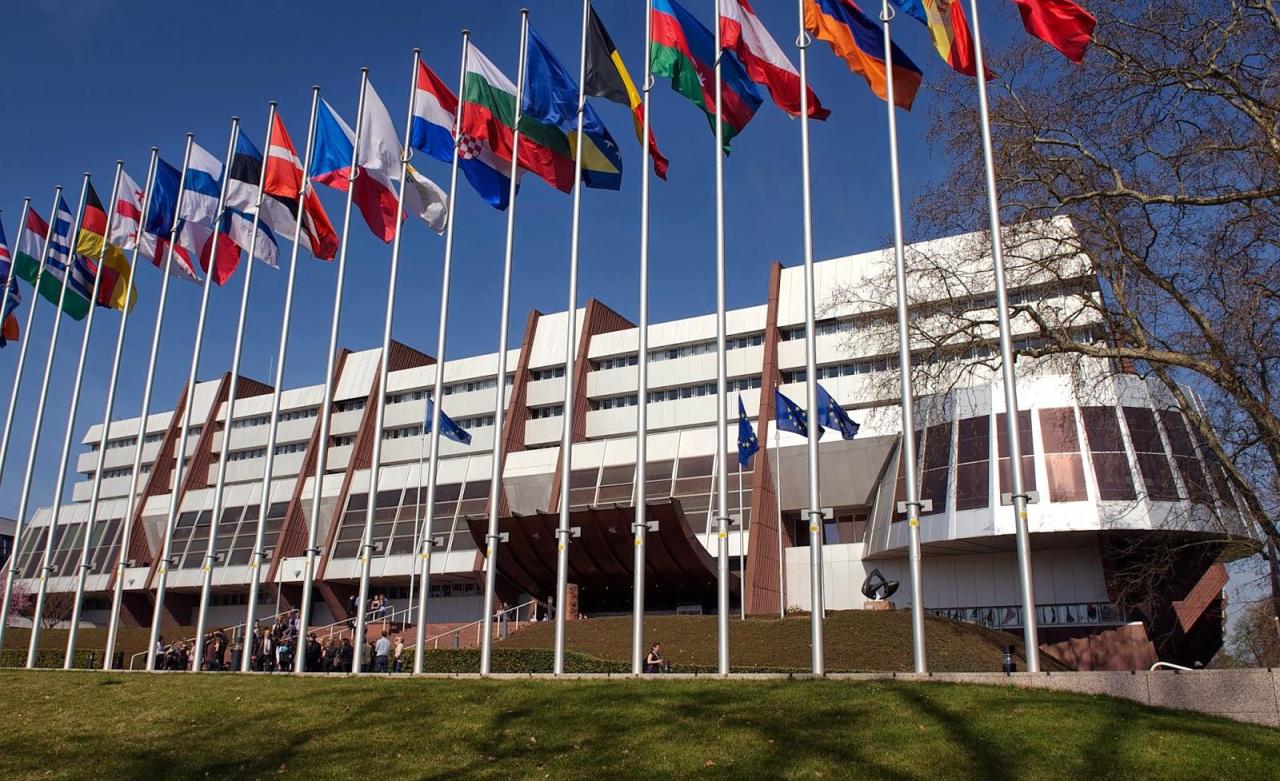CoE official: Azerbaijan, CoE established fruitful co-op in judicial sphere

By Leman Mammadova
Azerbaijan strives to ensure further effectiveness of judicial system, and in this regard the government studies the experience of European countries.
Council of Europe (CoE) and Azerbaijan have established fruitful cooperation in the judicial and legal sphere, said Hanne Juncher, Head of the CoE Department of Justice and Legal Cooperation, at the presentation of a new CoE project "Improving the efficiency and quality of the judicial system in Azerbaijan".
She added that the project will serve the development of cooperation between the sides.
“CoE has a long-term cooperation with various structures of Azerbaijan in this direction, including with the Ministry of Justice,” Juncher noted, adding that Azerbaijan has achieved great success in the improvement of the judicial system.
She stressed that the new project will improve the efficiency of the judicial system.
In his speech, Azer Jafarov, Azerbaijani Deputy Minister of Justice, underlined that the independence of the judicial system is ensured in Azerbaijan, for which the legislative base is being improved.
He noted that, while carrying out reforms, the government refers to the experience of European states.
“The provisions of the new project correspond to the presidential decree “On deepening reforms in the judicial and legal system”. Azerbaijani government is ready to take steps in this direction,” Jafarov said.
He added that the most effectiveness of justice in Azerbaijan accounted for the period of cooperation with the European Commission for the Efficiency of Justice (CEPEJ). “Over this period, more democratic and transparent amendments have been made to the legislation.”
Jafarov also noted that the number of judges, court staff, and lawyers has increased in the country, their material and social protection was strengthened, the budget of courts was enhanced, and this process continues today.
He stressed that in most cases, reforms rely on the analysis of qualitative and quantitative indicators of CEPEJ projects carried out in relation with the judicial systems in other CoE countries.
The new project should be viewed as a continuation of work to improve the judicial system, Jafarov mentioned.
It should be noted that the decree on deepening reforms in the judicial-legal system stresses issues of ensuring the independence of judges, enhancing their social protection, preventing interference in the affairs of courts, as well as assessing the professional level of judges and the need to bring judges committing legal violations to disciplinary responsibility.
The decree also provides for the completion by the Ministry of Justice of the work on the electronic judicial system and the creation of an effective search system within its framework based on various criteria and decisions according to the experience of leading countries. The effectiveness of this system will ensure transparency, consistency and accessibility of not only the legal system, but also court decisions for any person.
Speaking at the presentation of the new CoE project, EU Ambassador to Azerbaijan Kestutis Jankauskas stressed that Azerbaijan is an important partner of the EU, pointing out that negotiations on a new partnership agreement are underway.
He said that this document can be called a new generation agreement. “It's because the foundations of our current relationship were laid in the mid-1990s and these foundations need to be updated.”
In his words, both sides want to develop this partnership, which requires modern, strong and updated foundations.
Jankauskas added that progress is being achieved in negotiations on a new agreement.
Currently, bilateral relations between the EU and Azerbaijan are based on the EU-Azerbaijan Partnership and Cooperation Agreement signed in 1996 (entered into force in 1999), covering many areas from trade to education.
The new agreement should replace the agreement of 1996, and should better take account of the common goals and challenges the EU and Azerbaijan face today.
The new document envisages for the approximation of Azerbaijan's legislation and procedures to the most important international and trade norms and standards of the EU, which should lead to improved access of Azerbaijani products to the EU markets.
The agreement will comply with the principles approved in 2015 in the document of the European Neighborhood Policy and will offer an updated basis for political dialogue and mutually beneficial cooperation between the EU and Azerbaijan.
---
Leman Mammadova is AzerNews’ staff journalist, follow her on Twitter: @leman_888
Follow us on Twitter @AzerNewsAz
Here we are to serve you with news right now. It does not cost much, but worth your attention.
Choose to support open, independent, quality journalism and subscribe on a monthly basis.
By subscribing to our online newspaper, you can have full digital access to all news, analysis, and much more.
You can also follow AzerNEWS on Twitter @AzerNewsAz or Facebook @AzerNewsNewspaper
Thank you!
